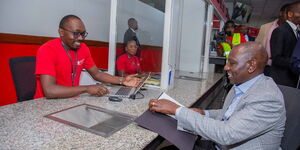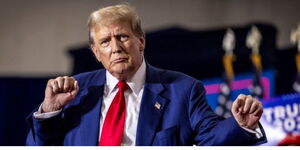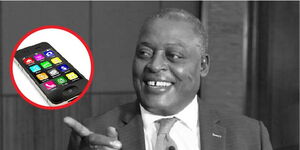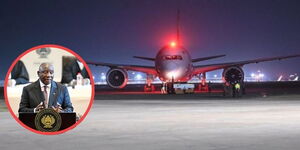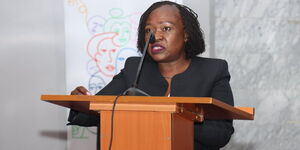The High Court has suspended the implementation of the Ksh45,850 levy that was charged for goods set for South Sudan.
Justice Gregory Mutai temporarily halted the orders pending the determination of the case by the Kenya International Freight and Warehousing Association (KIFWA) which challenged the implementation of the levy by the South Sudan government.
The South Sudan government had introduced a levy set at USD 350 (Ksh46,550) for the Electronic Cargo Tracking Note set to be placed on all cargo destined to the country.
Further, South Sudan instructed Kenyan agents to collect taxes on their government's behalf and pay the fee to a private company in Uganda.
This led to an uproar from the Kenya International Freight and Warehousing Association (KIFWA) which noted that the levy was imposed on Kenyan agents instead of South Sudanese nationals.
Following the uproar, KIFWA filed the case in court seeking to bar Kenyan agents from collecting taxes on behalf of South Sudan.
Response From KIFWA Chairman
Speaking to Kenyans.co.ke, Roy Mwanthi, KIFWA chairman, expressed delight in the court's decision, noting that justice was served on over 400 containers blocked at the Mombasa port.
He explained that a meeting with the Commissioner in South Sudan led to a stalemate after the latter declined the request for South Sudanese agents to collect taxes for cargo destined for their country.
"We met the commissioner in South Sudan who refused and said that it should be collected by Kenyan agents on their behalf and that is why they rejected it," he stated.
"They insisted on blocking containers from leaving Mombasa. That is why we rushed to court and they found that our rights were being violated. It is a win-win and we expect them to collect taxes using their agents."
Mwanthi detailed that the South Sudanese government contravened the law by instructing Kenyan agents to collect taxes on their behalf, highlighting that each country has its unique custom entry.
A custom entry is a document that shows the details of cargo including type, quantity, and value being taken in and out of a country. It's essential for customs clearance purposes.
"We don't collect levies for any other states because each country has its own competent clearing and forwarding agent," he explained.
"The law says a commissioner from partner states cannot overlap and tell another to collect on their behalf. We are very happy because the jam that had piled up (at Mombasa port) is now been cleared."
We don't expect any other country to instruct us to collect taxes on their behalf."




